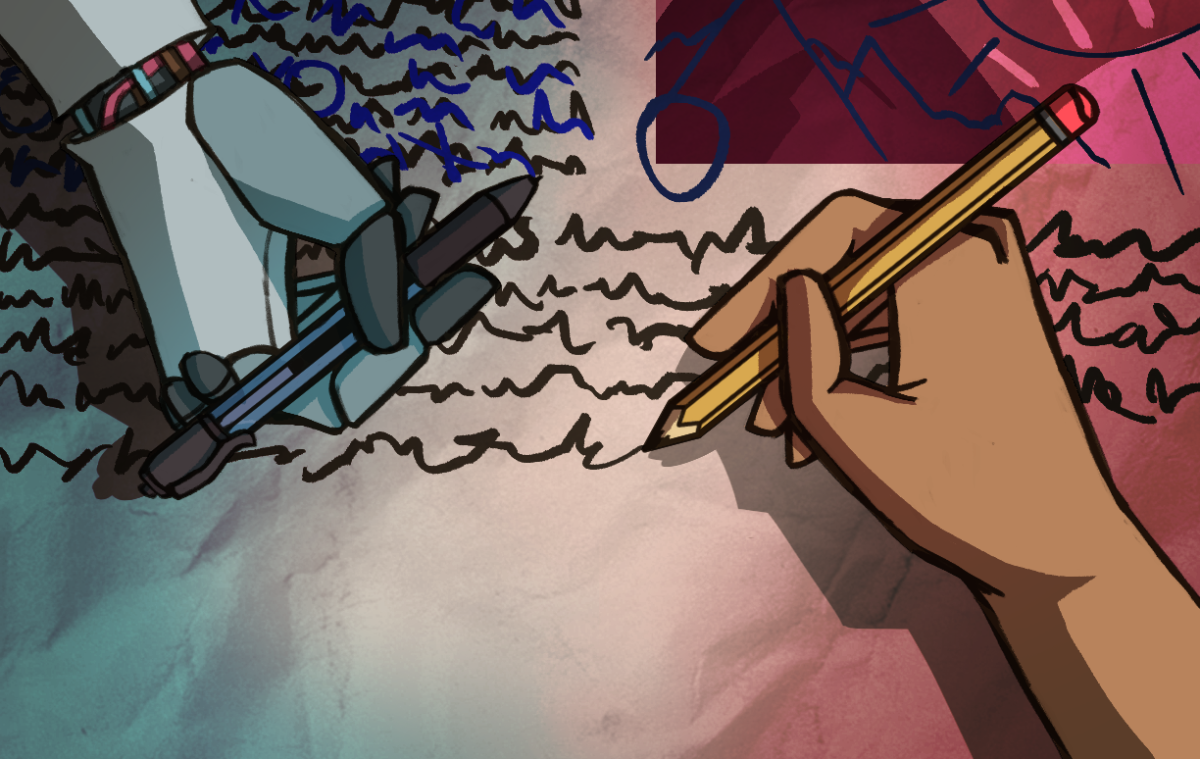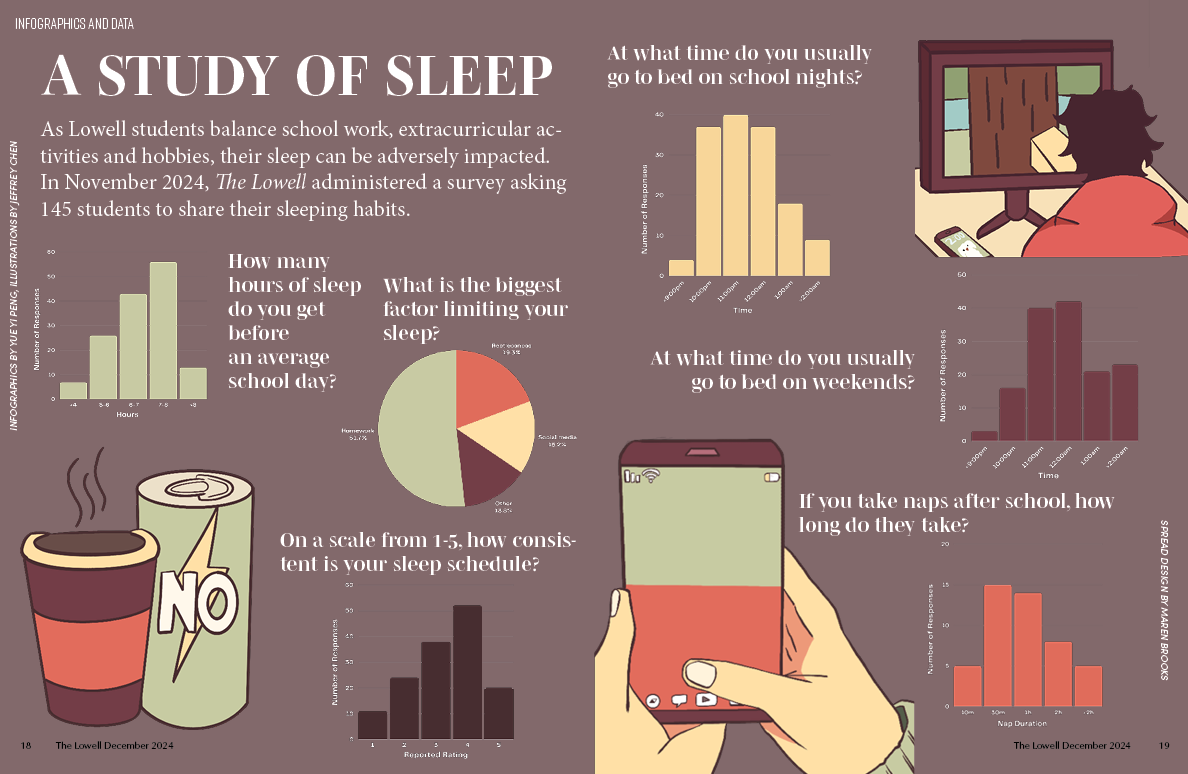Red and white mushroom hat-wearing students puttering about the hallways are a common sight at Lowell. As iconic as these Shield and Scroll members present to be at school, this service and honor society has accumulated a prestigious appeal through unreasonable barriers to entry. The admissions process consists of having members rate applicants and limiting the number of students who can join, creating an unfair horse race marked by unnecessary qualifications, favoritism, and an elitist culture. Shield and Scroll must adopt a fairer admissions process that does not restrict the number of qualified student applicants accepted.
The qualifications to be a mushroom hat wearer often seem disproportionate to the manual labor performed. Shield and Scroll members undeniably provide valuable volunteer services to Lowell students and faculty; these students take time out of their busy schedules to tour incoming freshmen, move tables around classrooms, and organize school-wide events — all of which are tasks that help “Lowell run as effectively and efficiently as possible,” according to the Student Body Council. However, students with 4.0 GPAs and extracurricular involvements are often rejected despite their evident display of commitment. Its current system strips qualified student applicants of any chance to participate in this service society, leaving many to question why a service organization is so competitive.
Shield and Scroll’s use of an anonymous and holistic student-teacher voting process appears fair in theory; in reality, it is laced with nepotism. When prospective members apply, current members rate each applicant based on their GPA and school involvement. While applicants are reviewed without their identity, members can easily pick students apart from their own network by checking which extracurriculars the applicant participates in. For instance, a student in the Lowell Student Association (LSA) has a comparative advantage over another student with many extracurriculars and a 4.0 GPA in the admissions process. Behind closed doors, favoritism towards specific extracurricular involvements leaves applicants to be judged based on preconceived biases. As a result, applicants are unfairly evaluated and rejected or accepted according to their social connections.
In addition, the cap on how many students are accepted perpetuates a toxic culture that has detrimental effects on students’ well-being. Each school year, only 80 students applying make the cut, promoting the idea that only a minority of students are worthy of the Shield and Scroll title. For so many underclassmen, being accepted into Shield and Scroll means being one step closer to attending the prestigious college of their dreams. This is simply not the case; it may seem like a huge deal to Lowell students, but Shield and Scroll is just one accolade among many on a student’s college application. Factors such as GPA and commitment to specialized extracurriculars are far more impactful. By continuing the existing competitive nature at Lowell, Shield and Scroll’s selectivity adheres to the very misconstrued ideals that Lowell students embodied in the Try Harder film, a mindset that’s warned against. It seems that as “Lowell’s second oldest organization,” Shield and Scroll attempts to cling to its elitist traditions. However, Lowell is not the same as it was decades ago — given the undulating admissions policies from lottery to merit in recent years — and Shield and Scroll must catch up to the present and reduce tension-filled cleavages among the student body rather than trying to hold onto the past.
By implementing a less restrictive admissions process for Shield and Scroll members, Lowell could foster equity and accountability. The mushroom hat, instead of symbolizing prestige, should represent school service and a genuine commitment to volunteering. While the admissions policy for Lowell itself remains contentious, there is no question that Shield and Scroll, a cornerstone of Lowell’s culture, must acknowledge the need to level the playing field through fairer selection procedures. To ensure that each student has equal footing, Shield and Scroll must make efforts to remain impartial during the voting stage and accept each student who is qualified to be a committed volunteer — not confined to a 80-slot cap.










Stephanie Crabtree • May 22, 2024 at 11:32 pm
There are many inaccuracies in this op-ed. Selection process is not as described (faculty plays a significant role in selecting applicants), and GPA minimum (3.0) is to insure that students are able to balance their academic workload and wellness in addition to their extracurricular commitments, similar to that of athletic and performance art requirements. Also, there are 80 members selected during their junior year who serve through their senior year (160), not 40. Students who are inducted in Shield and Scroll must also maintain academic integrity, and treat others with dignity and respect to stay in the organization.